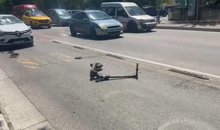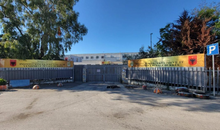
 Flash News
Flash News
Drenova prison police officer arrested for bringing drugs and illegal items into cell
Lavrov: NATO is risking self-destruction with new military budget
Kurti and Vučić "face off" tomorrow in Skopje
Construction worker dies after falling from scaffolding in Berat
The prosecution sends two Korça Municipality officials to trial
Negotiations with Albania, EU: The fight against corruption still insufficient

Albania and the European Union held on Tuesday in Luxembourg the second Intergovernmental conference, which also marks the opening of the "Basic" group-chapter in the membership negotiations.
Péter Szijjártó, Minister of Foreign Affairs and Trade of Hungary, which holds the next presidency, and the Commissioner for Neighborhood and Enlargement, Olivér Várhelyi, considered this moment an important step not only for Albania, but for the future of the enlargement of the Union. .
"Fifteen years of waiting is inappropriate, we need to speed up the enlargement procedure now," said the Hungarian minister, speaking during a joint conference with Albanian Prime Minister Edi Rama.
Prime Minister Rama described this moment as "a historic cornerstone in the joint journey towards European reunification" and said that this is the only plan for Albania's future. Answering journalists' questions, Rama announced the ambition to complete the process by 2030.
The Albanian government requests accelerated integration for several chapters, which includes the function of democratic institutions; reform in Public Administration; Judiciary and Fundamental Rights; Justice, Freedom and Security as well as Public Procurement.
But according to the negotiating position of the European Union, which was made public, Albania still has a lot of work to do in relation to the fight against corruption, media freedom or ownership registration and transparency. The EU also underlines that the performance of the Albanian economy has was "below potential" and convergence, i.e. the approach of Albania's economic level to the EU average, is "slow".
The biggest criticism relates to the seemingly most significant development of recent years, the fight against high-level corruption, with several ministers and two dozen senior officials charged or convicted, including a former deputy prime minister and a former prime minister. . While these developments seem great compared to almost zero convictions before, for Brussels officials the result is no more than encouraging, but still "insufficient".
"The EU notes as positive some final convictions for corruption charges against senior officials," the EU's negotiating position says. "The EU nevertheless underlines that corruption is pervasive in most areas of public life and business, including all branches of central and local government and institutions, and this remains an area of serious concern," the document further reads.
"The EU also notes that anti-corruption measures have generally had limited impact so far in the sectors most at risk of corruption."
Albania undertook the Justice Reform in 2016 and since then, the success achieved in cleaning up the system through the vetting process and the first cases of accusations and convictions for corruption by the Special Structure Against Organized Crime and Corruption has served as a key argument for Albania's progress in achieving the criteria required for membership. But unlike this, the EU seems to have asked the question whether or not the success so far is enough to conclude that corruption is being fought properly and has come to the conclusion that the real impact has been "limited".
In addition to the general assessment of the state of corruption, the EU calls especially for mortgages to "take sound measures against corruption" and to ensure that requests are fully handled within the 45-day legal deadline. The document notes that the lack of property rights in the country and difficulties in registering properties "continue to limit the efficient functioning of the market economy".
Big problems with freedom of expression
The second point in the negotiating position where Albania has received particularly strong criticism has to do with freedom of expression. In any case, she notes at this point as a "positive fact" that Albania has expressed its willingness to undertake deep reforms in the legal and regulatory framework. Albania, according to the EU, should "strengthen the transparency of media ownership, media pluralism and editorial independence, strengthen the transparency of media financing from private and state sources and strengthen the autonomy of the media regulator and the independence of the public broadcaster" .
Albania has a television market dominated by a few operators, who have multiple interests with the government, including public-private partnership contracts or public procurement, while the nature of ownership in these televisions, usually with one owner or under the ownership of a family, reduces the possibility of having an editorial staff in which editorial decisions are made based on the principles of independent journalism and not on the interests of the owner.
"The EU notes that the atmosphere of verbal and physical attacks, smear campaigns and strategic lawsuits against public participation targeting journalists has not improved and remains a problem to be addressed," the document says. "The EU underlines the importance for Albania to completely abolish the criminal provisions for insult and defamation and to align the civil aspects of defamation with European standards," the document states. Reporter.al
Latest news



Second hearing on the protected areas law, Zhupa: Unconstitutional and dangerous
2025-06-30 22:18:46



Israel-Iran conflict, Bushati: Albanians should be concerned
2025-06-30 21:32:42

Fuga: Journalism in Albania today in severe crisis
2025-06-30 21:07:11
"There is no room for panic"/ Moore: Serbia does not dare to attack Kosovo!
2025-06-30 20:49:53

Temperatures above 40 degrees, France closes nuclear plants and schools
2025-06-30 20:28:42
Lavrov: NATO is risking self-destruction with new military budget
2025-06-30 20:13:54
Turkey against the "Bektashi state" in Albania: Give up this idea!
2025-06-30 20:03:24

Accused of sexual abuse, producer Diddy awaits court decision
2025-06-30 19:40:44



Kurti and Vučić "face off" tomorrow in Skopje
2025-06-30 18:44:12
Tourism: new season, old problems
2025-06-30 18:27:23


Construction worker dies after falling from scaffolding in Berat
2025-06-30 17:51:44




Almost free housing: East Germany against depopulation
2025-06-30 16:43:06

Hamas says nearly 60 people killed in Gaza as Trump calls for ceasefire
2025-06-30 16:14:15
Drownings on beaches/ Expert Softa: Negligence and incompetence by institutions!
2025-06-30 16:00:03


European ports are overloaded due to Trump tariffs
2025-06-30 15:30:44
The prosecution sends two Korça Municipality officials to trial
2025-06-30 15:19:54

Lezha/ Police impose 3165 administrative measures, handcuff 19 drivers
2025-06-30 14:55:04
Young people leave Albania in search of a more sustainable future
2025-06-30 14:47:52
Record-breaking summer, health threats and preventive measures
2025-06-30 14:36:19


Constitution of the Parliament, Osmani invites political leaders to a meeting
2025-06-30 14:07:54

Heat wave 'invades' Europe, Spain records temperatures up to 46 degrees Celsius
2025-06-30 13:42:02
Accident in Vlora, car hits 2 tourists
2025-06-30 13:32:16

Kurti confirms participation in today's official dinner in Skopje
2025-06-30 13:03:27

Fight between 4 minors in Kosovo, one of them injured with a knife
2025-06-30 12:38:45

Report: Teenage girls the loneliest in the world
2025-06-30 12:20:40
Commissioner Kos and Balkan leaders meet in Skopje on Growth Plan
2025-06-30 12:07:59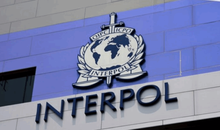
Wanted by Italy, member of a criminal organization captured in Fier
2025-06-30 11:55:53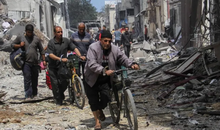
Hundreds of families displaced by wave of Israeli airstrikes in Gaza
2025-06-30 11:45:17
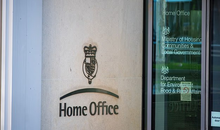
Zenel Beshi: The criminal who even 50 convictions won't move from Britain
2025-06-30 11:23:19
A new variant of Covid will circulate during the summer, here are the symptoms
2025-06-30 11:14:58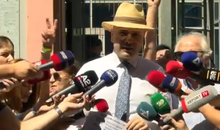
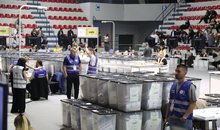
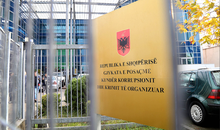
"Partizani" case, trial postponed to July 21 at the Special Court
2025-06-30 10:41:05
Uncontrolled desire to steal, what is kleptomania, why is it caused
2025-06-30 10:30:08
Requested change of security measure, hearing for Malltez postponed to July 7
2025-06-30 10:24:32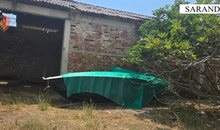
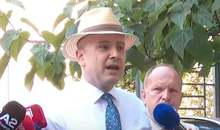

Output per working hour in Albania 35% lower than the regional average
2025-06-30 09:54:35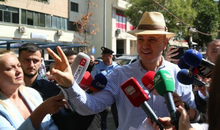
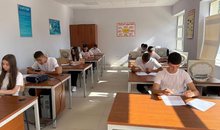
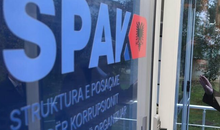
The trial for the "Partizani" file begins today
2025-06-30 09:27:57
22 fires in the last 24 hours in the country, 2 still active
2025-06-30 09:21:28
How is the media controlled? The 'Rama' case and government propaganda
2025-06-30 09:13:36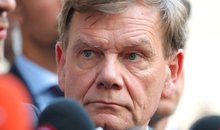
German top diplomat: Putin wants Ukraine to capitulate
2025-06-30 09:00:07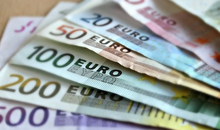
Foreign exchange, how much foreign currencies are sold and bought today
2025-06-30 08:44:38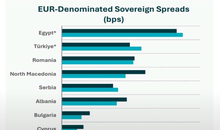
Chart/ Sovereign risk for Albania from international markets drops significantly
2025-06-30 08:26:38
Horoscope, what do the stars have in store for you?
2025-06-30 08:11:44
Clear weather and passing clouds, here is the forecast for this Monday
2025-06-30 07:59:32
Morning Post/ In 2 lines: What mattered yesterday in Albania
2025-06-30 07:47:37
Milan make official two departures in attack
2025-06-29 21:57:23
6 record tone
2025-06-29 21:30:46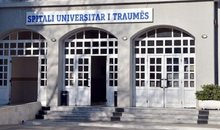
4-year-old girl falls from balcony in Lezha, urgently taken to Trauma
2025-06-29 21:09:58
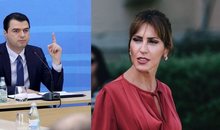

Assets worth 12 million euros seized from cocaine trafficking organization
2025-06-29 19:39:43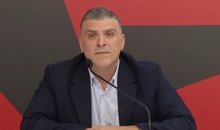
Fire in Durrës, Blushi: The state exists only on paper
2025-06-29 19:17:48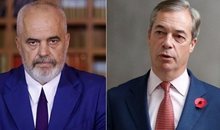

Fire endangers homes in Vlora, helicopter intervention begins
2025-06-29 18:27:51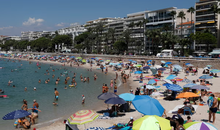
France implements smoking ban on beaches and parks
2025-06-29 18:02:08
England U-21 beat Germany to become European champions
2025-06-29 17:42:49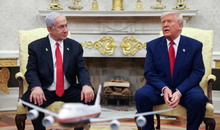
Trump criticizes Israeli prosecutors over Netanyahu's corruption trial
2025-06-29 17:08:10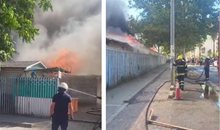
Street market in Durrës engulfed in flames
2025-06-29 16:52:57

UN nuclear chief: Iran could resume uranium enrichment within months
2025-06-29 16:03:24
Albanian man dies after falling from cliff while climbing mountain in Italy
2025-06-29 15:52:01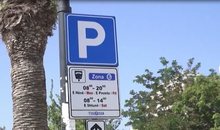

Another accident with a single-track vehicle in Tirana, a car hits a 17-year-old
2025-06-29 15:07:15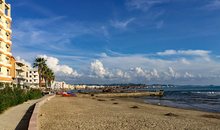
While bathing in the sea, a vacationer in Durrës dies
2025-06-29 14:54:01
Sentenced to life imprisonment, cell phone found in Laert Haxhiu's cell
2025-06-29 14:26:40
77 people detained in protest, Vučić warns of new arrests
2025-06-29 14:07:46